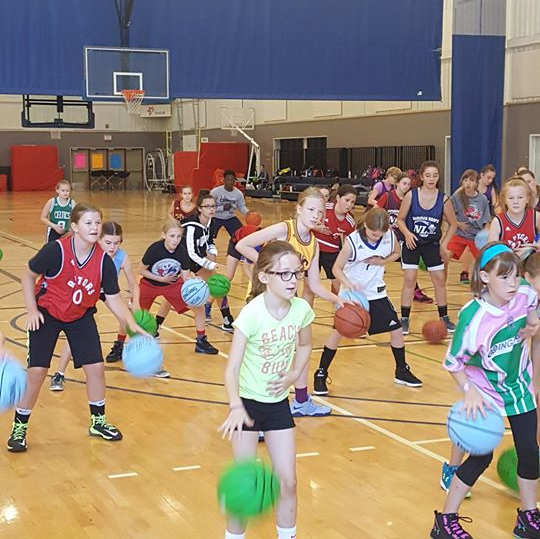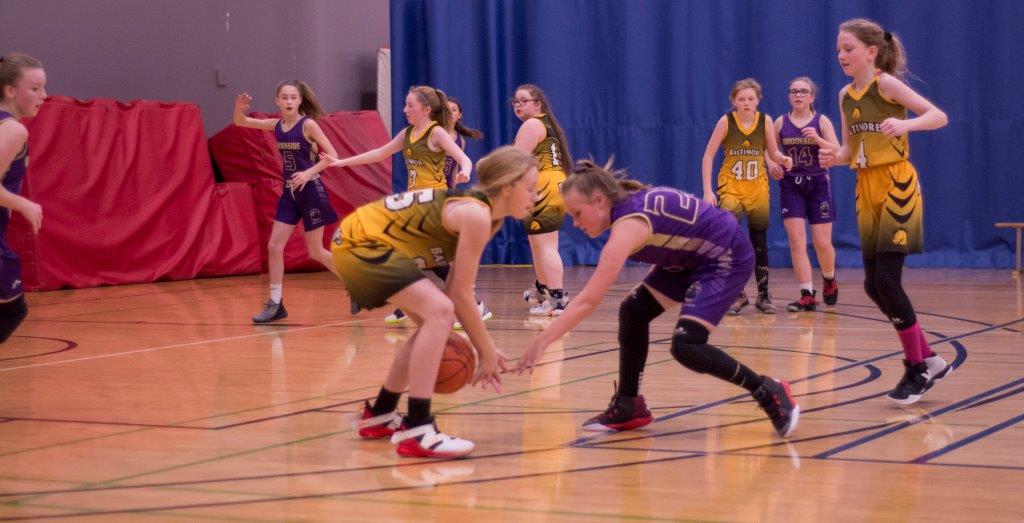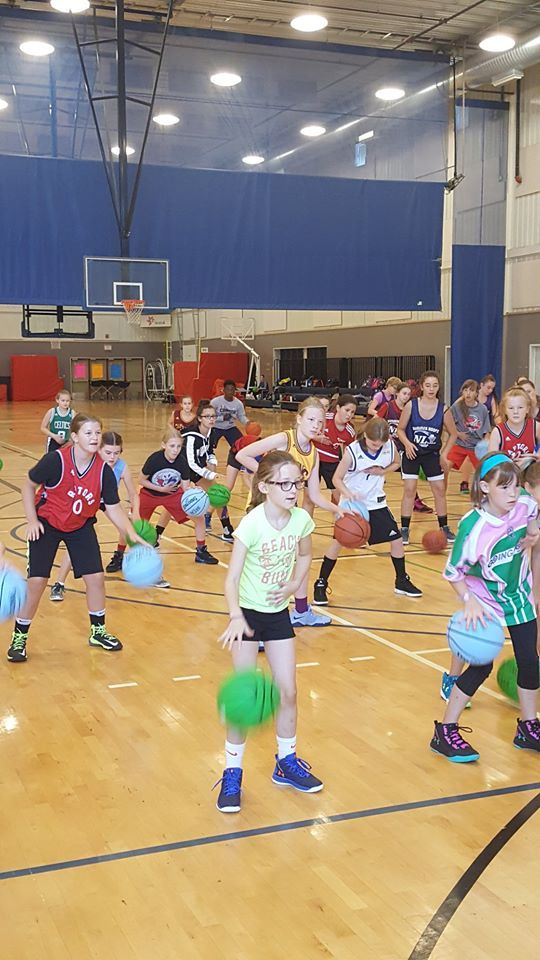Blog
Newfoundland Labrador Basketball Association: Blog

11 Jan, 2022
The goal of every organization is to provide a safe and inclusive environment to everyone who is involved in their programs. From the athletes, coaches , officials, and the spectators, the NLBA wants everyone to feel safe and supported in their endeavors. While every situation is different and every individual is different in how they perceive situations, it is important for the NLBA to provide resources and information to everyone to help give individuals the ability to foster athlete’s mental and physical wellbeing as well as provide those save environments to do that in. The Coaching Association of Canada (2020) reflects this perspective in its definition of Safe Sport: “Our collective responsibility is to create, foster and preserve sport environments that ensure positive, healthy and fulfilling experiences for all individuals. A safe sport environment is one in which all sport stakeholders recognize, and report acts of maltreatment and prioritize the welfare, safety and rights of every person at all times.” When the priority is optimizing the sport environment, the prevention of maltreatment or harms becomes a natural by-product. There are various forms of maltreatment in sport including but not limited to psychological, physical, sexual, neglect, grooming and failure to report maltreatment. Your child could be experiencing one or multiple forms of maltreatment. As parents and coaches, it is important to be able to recognize the signs that maltreatment may be happening. Some of these signs include but aren’t limited to a change in personality, your child not wanting to go to their sessions, any anxiety or anxiousness about participating that they didn’t have before. While these types of signs may be associated with other areas of an individual’s life, not necessarily maltreatment, it is a sign for you to start inquiring and digging deeper into what is happening in their lives. Maltreatment doesn’t only happen by a coach or person in authority. It can happen in a peer-to-peer setting such as through bullying or harmful behaviors towards each other. Maltreatment also doesn’t only happen in the training facility; it can happen at events outside of the training sessions such as informal get togethers, or even through online social media. Ensure activities are done in groups with other people around. Canada Basketball and the NLBA have the rule of 2 in place with the goal of ensuring interactions and communications are open, observable, and justifiable. While it is geared towards coach athlete interactions it is recommended to be used in all situations where adult/child interactions are occurring. Some red flags to watch for within a program would be things like: inappropriate private conversations through text messages or DM’s with the individual, verbal abuse from a person in authority such as a coach towards an athlete, the feeling of unrealistically high expectations followed by excessive punishment if not achieved. Other things to be aware of include when coaches are isolating the individual from the rest of the group, a coach failing to ensure safety of the individuals by using unsafe equipment or forcing participation when injured or unwell. While these signs are not exclusive and may be observed in other situations than maltreatment if you have a bad feeling about a situation or program it is worth looking into further. Over the years education pieces have changed, there are many resources out there available to people to take that promote safe sporting environments as well as help educate individuals on how to recognize, prevent and address maltreatment in sport. Most recently the Coaches Association of Canada has come up with a free NCCP course called Safe Sport which can be taken by anyone and helps give individuals the tools needed to create a culture where everyone can thrive safely. The NLBA has recently mandated that all its board members, staff, and coaches complete this Safe Sport course. And NABO has mandated that its officials have this course completed as well. We will also be requiring all provincial team athletes and parents complete this course in the future. It is a great resource to provide knowledge and tools in the hands of everyone to create safe sporting environments. In addition to this training the NLBA also requires that all of its coaches complete a vulnerable sector search with the RNC/RCMP and provide a clear record every year. Our coaches are also required to be NCCP certified which includes respect and ethics training as well. There have been many stories coming to light of maltreatment of athletes in various sports, often these don’t come into light until many years after the events have occurred. It is important that we provide safe spaces to allow for individuals to feel protected, should they come forward. One additional resource the NLBA is introducing as of January 15, 2022, is an anonymous reporting portal on our website. Here you will be able to report incidents of suspected maltreatment to a committee which will investigate these reports. All reports will be kept on file to reference and be monitored for any patterns that may emerge. There will be an independent committee that will investigate and take action where needed from these reports in alignment with our Athlete Protection Guidelines. It is everyone’s job to contribute to a safe sport environment. Parents, athletes, officials, coaches, board members all play a role in the recognition and prevention of maltreatment in the NLBA environment. Thank you for doing your part. Links: NLBA Safe Sport Information: https://www.newfoundlandlabradorbasketball.com/safe-sport NLBA Safe Sport Reporting Form: Safe Sport Training: https://safesport.coach.ca/participants-training NLBA Athlete Protection Guidelines: https://irp.cdn-website.com/08525354/files/uploaded/2021%20Athlete%20Protection%20Guidelines.pdf
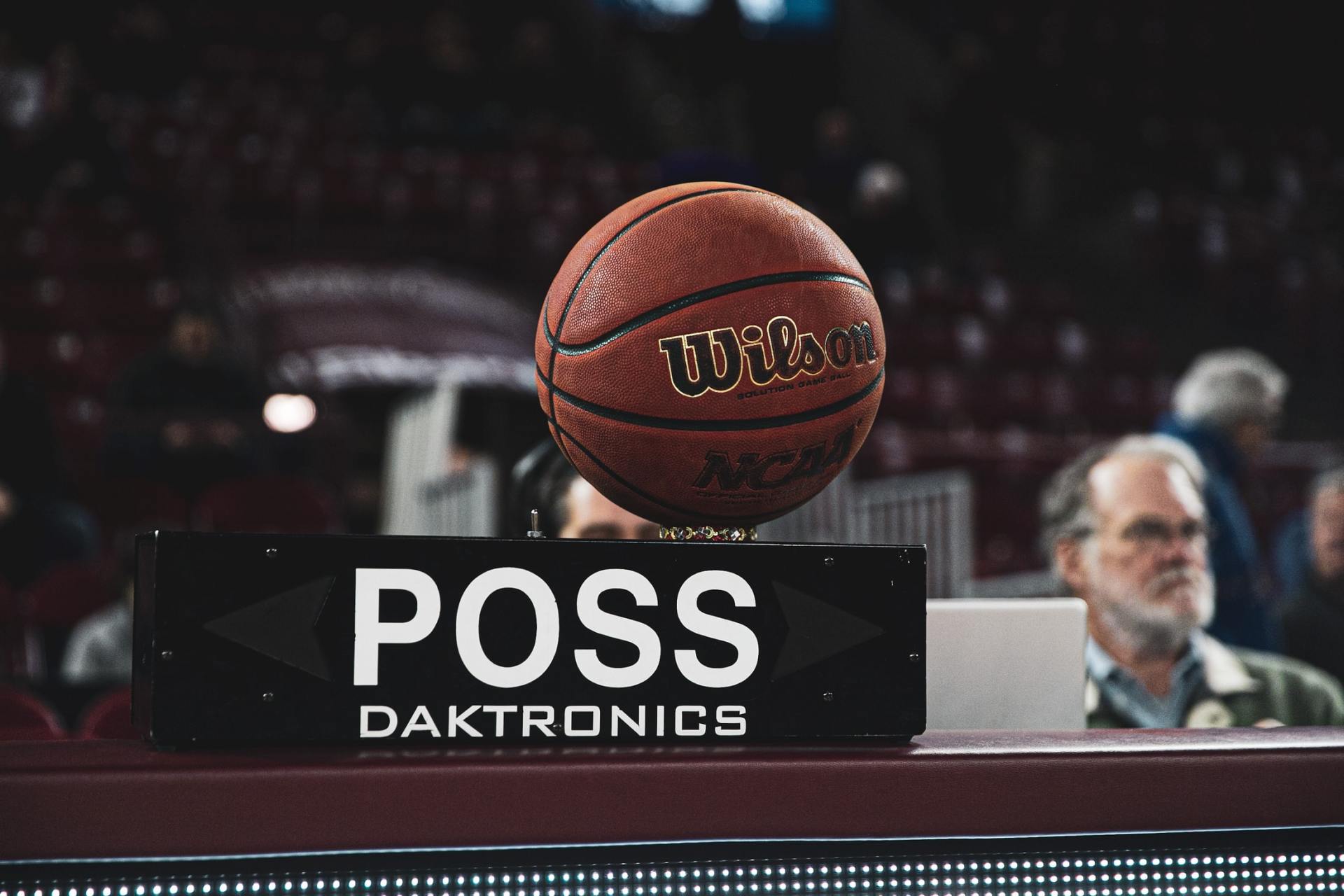
By Douglas Partridge
•
01 Sep, 2020
The final element of quality coaching is attention to detail. Like fitness, the evidence of attention to detail is a little trickier to define and may be more readily understood by those involved, but can be discerned over time in a team’s execution. In this instance, it is often easier to discern a lack of attention to detail as opposed to its more positive counterpart. We can often sense a lack of attention to detail when we see players used out of position, or in ways that are counter to their natural skills or inclinations. We see it when players are used repetitively in situations or circumstances that they are not comfortable or productive in, or when a team makes no attempt to understand the underlying ideas that the opposition is employing to fuel their success. We all have a pretty good idea about what a poorly organized team looks like. The important distinction then is to get a firm grasp on when we are watching a team that pays attention to detail. The first point is not to confuse attention to detail with execution. Often we feel that if a team executes its system, with proper spacing or the right defensive principles, then attention is being paid to detail. After all, the players are doing the right things. Attention must be paid if the players are all moving in the same direction. As we have discussed earlier, proper execution often has less to do with quality coaching and more to do with the experience level of the players involved. The coach may pay no attention to detail but have a group of veteran players that understand the importance of knowing their lines. These players have enough collective service to know that if everyone is doing whatever they want, there is little chance of a positive outcome. However, if everyone follows the script and does their job, much can be salvaged. The cursory contemplation of whether a team executes well does not necessarily reveal attention to detail. Attention to detail is more revealed in the way a team prepares to play. This is often what is referred to as situational coaching. I not only prepare my team in the standard means of what we do and how we do it, but I also make sure they understand as many of the various situations we can find ourselves in and what we want to do in these circumstances. In basketball, if we are up 1 point with 30 seconds left and are on defence how aware are we of what the other team will attempt and how ready are we to break-up the play. In football, how well do we know the other team’s goal line plays and what they will run in crucial situations. This knowledge is often the direct result of a coach’s willingness to engage in meticulous tape study and create a knowledge base of what are the opponent’s tendencies and crutches. Taking away these tendencies, or least the attempt to take them away, is the attention to detail that often separates the quality of coaching we are watching. In various sports, the manipulation of time outs or clock management can also be important signs of attention to detail. Knowing your players to the point that you are aware of when they can play through difficult situations versus when you need to interject yourself into the process to change the course of events. Often lesser coaches will use timeouts or make play calls like it is from a manual. In this situation, you are less likely to be second guessed after a negative outcome if you follow this set of choices. In situations where jobs are on the line, this may even be understandable. The real quality coach has a feel for execution and when their input has real value and will make decisions to reinforce the confidence they have in their players when in a situation where things do not look good for them. They know that if they allow things to continue unchecked, the opposition will eventually make a choice that favours them if they are left without the ability to consult their own coach. All of these situations are better indications of attention to detail then plain execution. In the same vein as the above, is the ability of a coach to understand how to tilt those few crucial possessions in their favour to help their team be successful in a close game. They may create a match-up that seems to favour the other team, but when the team bends their offense to try and take advantage of the match-up, it disrupts their flow and allows the coach's team to enjoy a crucial period of success. Similarly, they will know which players they can allow to have certain opportunities because it detracts from the concepts or players that help that team be successful and win games. These subtle disruptions of a game's flow are often the small advantages that add up to a team being able to have success. Another thing that you see in teams that pay attention to detail is the ability to be calm or composed in key situations. When attention is paid to detail and the situations that arise in games, then players grow comfortable with these situations and what must be done. They may or may not be able to execute, but they do not fail because they are flustered or rushed. Their awareness of what needs to be done gives them a sense of calm. You will also see growth in young players, while they may be flustered in one situation, the next time they encounter that situation adjustments will have been made and they will know their role and understand what they are trying to accomplish. These teams just seem to understand what needs to be done and who needs to be in charge and what they are looking for. Finally, a coach who pays attention to detail understands what their teams need from them. In many cases, any coach can detect that something is not going properly or execution is off. The key is in knowing what each player needs to hear to help them get to the right place. A coach who pays attention to detail will have studied enough solutions and spent enough time on various skills and tactics that they will know what the problem is, how it can be fixed and what a player needs to hear to make those adjustments. Coaching is often the ability to get someone to do what is in their own best self interest even if they do not understand that. In this regard, you have to know how to phrase things to help players get to where they need to be in order to enjoy success. This comes from paying attention to the details of who you are talking to and how they need to be redirected. We know we are looking at a well coached team when we see evidence of physical fitness, player improvement and attention to detail. Is the team we are watching able to wear down their opponents with superior physical play or pace? Do the players we are watching improve from year to year, or game to game, or even shift to shift at times? Does the team have a level of composure and seem to understand what needs to happen in order to undermine the opponent and create an opportunity to be successful? In evaluating the quality of a coach, it is not the cleverness of their plays or even the innovation of their system that matters. Creativity and innovation are important, but these types of coaches, because their loyalty lies with the system and not the players, can sometimes struggle in leadership positions. The three key components of good coaching - fitness, development and detail - are universal. They may or may not lead to a winning situation and talent deficits may lead to a losing record, but in that situation, we can see the seeds of success if a team upgrades their talent or natural development takes place over time.
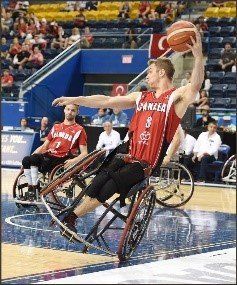
By Douglas Partridge
•
01 Jul, 2020
The first measure of the quality of a coach, a commitment to fitness, is one that may not be visible to the average fan. Other coaches may more readily notice the fitness levels of players through subtle signs of fatigue or a persistent lack of execution late in games. The second measure is one that is more easily discerned by all observers. A good coach will be committed to helping their players improve. If you are in a situation in which you can recruit, then there is the possibility of improving by acquiring better talent. Even in this situation, the surest path to team improvement is player development. The ability to envision what elements of a player's game need work and then to help execute a plan that enables players to live up to that vision is a sure sign that you are watching an impressive coach. A commitment to player development requires that a coach has a firm grasp of their over-all system and the skills required to execute that system. It also requires that a coach not be so committed to the system that all they have time for is 5-on-5 practice to master the rote movements and outcomes. Instead the system is used as a tool to help players understand where they need to get to with their games. It gives them a framework for all the footwork and cuts necessary to get to the right spots and the skills needed to make plays from those areas. When working in practice situations, good coaches are consistently talking to their players and offering instruction about how they need to do things and what they need to work on. Execution is broken down to the level of the needs for each individual participant. There is also a willingness by both the coach and the player to work individually to maximize a player's development. As players improve personally, it also helps develop the team's depth and gives the coach more usable pieces to have at their disposal. Athletes, like most people, will have the best intentions in terms of working hard on their fitness and skills. They will profess their desire to do what is needed and lay out their plan in terms of how they will accomplish their goals. This is where a good coach is able to stay on top of their players and see that they adhere to their plan; to make them accountable. It is like the Confucius saying, "At first the way I dealt with people was to listen to their words and trust they would act on them. Now, I listen to their words and observe whether they act on them. It was within my power to change this." You cannot control the actions of others, but you can control whether you are aware of the actions of others. A lot of coaches will offer their players advice on what they can work on, but are not actively involved in seeing that their players are developing and following that plan. They see this as the player's responsibility. Quality coaching understands the importance of directing their player's skill development and playing an active role in helping them reach their potential. Good coaches also understand the motivating factor that personal development is to most athletes. One of the surest ways to keep players happy and working hard is to help them see the positive impact their improvement is having on them and the team. Players pay better attention, work harder and feel better about what is happening when they feel some sense of control. The only thing in a team setting that they have any real control over is their own improvement. This is a key reason to concentrate on this facet of coaching. It is easy to get swept up as a coach in tactics and game plans and how the whole should function. When you spend an inordinate amount of time on system development, players can lose their connection to what is happening, feel like the process is out of their control and grow frustrated and stagnant. When a player senses that a coach is invested in their development and cares about their growth, they are more likely to compete hard and pay attention to the things the coach is looking for. Player motivation is a key reason to be invested in player development. Once you have decided that player development is a key consideration to ensure quality coaching, it opens up a consideration that every coach who is invested in individual improvement must confront. This consideration is the conflict that exists between outcomes and development. Over the last number of years, there has been a slow evolution away from coaching for outcomes and more focus on coaching for process. In outcome coaching, the emphasis is on winning and desirable outcomes for the team. In process coaching, we believe that a certain style of play will be beneficial and, if we establish that style, then we feel that the outcomes are more likely to be favourable. In outcome coaching, we are seeking something that we do not fully control. Ultimately, we have no control over outcomes or other variables like the officials, whether we are home or away, weather, illness, etc. which have an impact on the outcome of a sporting event. On the other hand, we can control how we play. Attempting to get our players to execute and behave in a manner consistent with what we feel like we need to be successful, is something in which we should seek to have a direct hand. This puts the control back in the athlete's hands and even though we may not always get the outcome we desire, we can always measure whether we played the way we want. Most people in the coaching business now see process coaching as the right path to follow. Even in choosing to be a process coach, the end remains the same: we are still trying to produce the best possible outcomes. We can be happy if the outcomes are not wins, if we play well, but what if our decisions directly impact our chances of playing well? As we have stated earlier, the more veteran the team, the more likely it will execute well. Making the decision to play your more senior athletes will usually give you the best chance to play well and therefore, the best chance to win. This is why judging a coach on their team's win/loss record can be misguided. If a team is full of young talent, that talent, because it lacks the necessary experience to understand the plan the coach has laid out and the reps to build faith in that plan, they are more likely to unnecessarily deviate and chase other goals or means of execution, often in misguided notions that they understand what needs to be done. This is not necessarily a lack of discipline or respect, just youthful exuberance. Learning to stay on point is part of the growth of every athlete. Often coaches are teaching the right things, in the right manner. What is needed is the patience to see the process through. With these things in mind, and if we accept that athlete development is a necessary part of quality coaching, then we must accept that helping young athletes learn and grow is significant. What follows then is the question, are there certain outcomes that we are willing to sacrifice to aid the development of our players? Sacrificing these outcomes can come in many forms. It does not necessarily mean losing, although that is a possibility. It can mean winning by a smaller margin, or under tougher circumstances. In some instances, it can mean letting a game get away that you might otherwise have won. If you identify a player who has the right skills and makeup to be a finisher, a player who can make plays late in games, then there may be some negative results while you give them the ability to acquire reps in that role. Letting the bench log minutes in situations where leads have been built may squander some or all of that lead, but the reps acquired by those players are valuable and the long term benefits are harder to judge. Having games or tournaments where you are up front about the outcomes not meaning as much as the development opportunities for some or all players, especially in youth coaching is valuable. This notion is even becoming more acceptable at pro levels, where the need to play younger players is acknowledged to have an outcome cost, but "rebuilding" is an accepted part of the process now. If you consistently keep player development in mind in the planning of opportunities and outcomes, then you are better able to build a more consistent base for your teams and produce more even results over a longer period of time. Often teams are forced to suffer through bad seasons when they swing too heavily to relying on veteran players and then suddenly lose a large number of them for various reasons. The willingness to place outcomes behind player development at certain times during the season is a sign that a coach understands the long game and is invested in both now and the future. It also strengthens a team, makes all players feel better up and down the bench about their contributions, and makes a team tougher to defeat at the end of the year. When you are building your yearly plan, these are important considerations to think about. The need to be committed to player development in all its forms should be ever present.

By Douglas Partridge
•
01 Jun, 2020
A long time ago I was lucky enough to be a part of a national NIKE development camp for basketball. At the camp, they had various speakers for the athletes and one was a physical trainer who talked to the athletes about fitness. In his talk, he reminded everyone of the old adage "mental is to physical as 9 is to 1." Then he flipped it around and said, in truth, "physical is to mental as 9 is to 1." At the time, I was a big believer in mental toughness and the mental side of sport and I found the flipping of the saying difficult to believe in, after all everyone prepared physically, how could it be the biggest difference maker? After spending more then a quarter century in coaching and athlete development, I believe that I now understand what he was saying. The first thing that all great coaches share is a dedication to physical fitness. Fitness is the foundation on which all great athletic endeavours are built. It is the base that carries all teams and athletes forward. It is an necessary starting point. The quickest way to turn around an unsuccessful sports team is to radically change the way athletes approach fitness and change the culture around working out. The fact is that the vast majority of athletes are not willing to pay the physical price to achieve any measure of greatness in sport. Sport is full of stories of coaches who enter situations and quickly let athletes go or cause athletes to get in better shape or work harder and then the team suddenly begins to enjoy success. The gauntlet is thrown down immediately. People will be in shape or they will not be welcome. The athletes that buy in right away begin to enjoy success and as the others see the success enjoyed by those athletes, it motivates them to join in the revolution. Soon the atmosphere has changed and working out is a must if an athlete wishes to fit in with their teammates. Fitness testing becomes part of the norm and the chance to measure one's work, drives some athletes to work even harder. The lower the level of sport, the more basic the training can be, but is essential to have a focus on training if a coach wishes to be successful. It may be easy to see why the focus on fitness is important, but how is it the most important? First and foremost, the emphasis on fitness instills a sense of discipline into what the athletes are doing. Work-outs become a focal point of the day and the way in which a player's body responds is measurable and easily felt. If one can be taught, led, or otherwise brought to develop a work ethic around physical training, it begins to grow into proper nutrition and many other areas as the athlete starts to feel better and craves to further that feeling. This all requires work and effort directed in the right way. All hallmarks of discipline. A coach can easily tell if their players are committed to training, if they are being productive. Athletes that complain about the work it requires to play are often tipping off the coach to the fact that they will resent hard work in practice and game situations and that they may lack the discipline or focus to be successful in the long run. The establishment of discipline that goes along with commitment to training is a great first step to success. Vince Lombardi famously said, "Fatigue makes cowards of us all." This is a crucial statement to the importance of training and physical development to coaching. Athletes rely on confidence to a great degree to be successful. The difference between two very talented players in a competition is never who wants it more, but rather who believes more that they will get it. What is the foundation of this confidence? I have always believed that confidence flows from preparation. An athlete who feels totally prepared will be, by extension, more positive about their ability to achieve. Competing requires a tremendous effort, in a way that being noncompetitive does not. If the athlete feels they have paid the right price to be where they are, then they are more likely to respond positively when they are in a difficult situation. They are not going to shrink from the moment. This may be the true importance of physical training. Although some athletes may have deep rooted feelings of inadequacy that may cause them to fail at key moments, most of these feelings can be overcome through proper preparation. Most athletes succeed because in the end they feel they have gone through too much to fail. Tough physical work-outs help to build that sense in athletes at every level. The fitter the team, the less likely it is to "choke." Finally, in order to show the true importance of physical conditioning over mental work, one has only to ask what happens when the physical breaks down? Athletes can have the most elaborate mental routines and exercises to keep them on track, but if they fatigue, the only thought passing through their mind will be, "I am exhausted!" It is easier to suppress fatigue as a factor if you have continually, and in many different ways, worked your body past your preconceived notions of your limits. Every person has notions about what they can and cannot endure. The breaking of these limits is essential to any athlete reaching success. The human body is a wonderful machine that can endure and adapt. If it is stressed in one way, it will work to compensate and that will allow it to be stressed further the next time. Muscle development, flexibility training, aerobic work, all forms of physical fitness are all about stress and growth. As each potential barrier is met and shattered, athletes get the sense that if they are willing they can accomplish anything and that fatigue is a mental state that can be overcome. In some sense this is an exercise of mind over body, but the mind needs the physical work in order to form this conclusion. Still need a little more convincing? We have all watched The Last Dance, with the great Bulls teams and Michael Jordan. Think back to the Bulls and when everything changed and they decided they would beat the Pistons and be champions. It all started with the athletes as a group, becoming dedicated to the weight room and working out at a level they had never experienced before. It gave them the strength, endurance and confidence to leave all their former doubts behind and become champions. It all started with a dedication to physical training. In the end, the lack of physical preparation for an athlete is decisive in outcomes. If you want to be a good coach, or player, the starting point is always physical prep and helping to motivate your athletes to pursue their best state of physical readiness. This is the foundation from which all other achievement is possible. Mental and spiritual development can only follow when the body is in order. For these reasons, all good coaching starts with a focus on physical fitness.

By Douglas Partridge
•
04 May, 2020
The quality of a coach has long been a point of contention. What exactly marks someone as a good/great coach? In most circles, the win loss record is the main measure. This is an interesting argument. The teams of a coach that have won on a high level, are champions, they have drank from the cup, therefore the coach knows what they are doing, they are good at their job. We have this fed to us again and again, by the media, the people we know, the public, everyone clamors for winning, that is the ultimate measure. After all, "the proof is in the pudding", and in this case it is a very public bake-off, so we can see immediately whether the coach knows what they are doing. Measuring the quality of a coach is easy then: it is as simple as whether or not they are able to win. The problem with this analysis is that it is too simplistic. With the advent of advanced analytics, perhaps no statistic has taken a bigger beating then the win. In baseball, winning is seen as everything from contingent on too many factors, to just the result of luck; being in the right place at the right time. This debate has raged for over a decade, whether the win has any value in measuring the quality of a pitcher. We are at the tail end of that debate and to argue it any further seems futile. The win has lost as a measure of success. Too many outside influences and factors have to be considered. If we are so ready to accept this as fact when measuring a player, then given their connectedness, which we have already argued, we have to also accept that it has no value in measuring a coach. The coach relies on the talent of their players, the quality of their support staff, the resources available to them and sometimes, just plain old luck in order to help guide their team to victory. There are just a lot of factors outside the control of most coaches to reliably use winning as the sole measure of success. In fact, you can probably be even more definitive in stating that no coach, anywhere, at any time has ever "won" a game. Plays are made by players, execution is on the people who are in the fight, no coach has ever sunk the winning free throw, kicked the game winning field goal, or fired home the penalty shot that wins the shoot-out. It bears repeating at this juncture, "the better the talent, the better the coach." If winning is not the measure of a coaches value, then we are left to look at other factors. Most people, if they admit that coaches are not to be judged by random victories, will often turn to style of play questions. How well does a team defend? How complex is its offensive execution or system? Is it a pleasing team to watch play? Quality coaching then is simply a measure of the quality of a team's play, after all, that is what the coach has installed. Their job is, take the talent on hand and build a system of play that will give the team a chance to be successful. In this sense, every time the team takes the field of play, we have a referendum on whether a coach knows what they are doing. Once we have watched enough games, we can, with confidence, pronounce the quality of the coach based on the team's execution, system and performance. This seems logical and the best measure of a coach. The quality of a team's system can be measured whether the team has talent or not; winning or losing are not part of whether a team plays solid systemically. While this seems like the perfect measure, it fails on at least two important considerations. First, and most importantly, there is a reason that teams that win championships in most leagues are stocked with veteran players. Veteran's have had time to figure out what matters to them. They have explored their own games, gone outside the system and made their names. They have had a taste of recognition or fame and have begun to glimpse their own mortality. Unlike young players, they know this is not forever; that father time is undefeated. They are prepared to be coached, listen and execute. In short, they understand the importance of being productive and knowing the script. With this in mind, we can see that often, execution has less to do with the quality of the coach and more to do with the type of players available. A slightly inferior coach working with veteran talent, that have a high desire to succeed and good sport IQ's, are likely to play a very good game, regardless of the inferior instruction. Similarly, a very good coach working with inexperienced talent that is still trying to establish its place in the league is likely to struggle at times with execution and quality of play. What is needed is not a better coach or firmer hand, but more experience for the players. The best example of this is probably the career of Doc Rivers. Rivers was hired by the Boston Celtics as they embarked on a rebuild. Over several seasons, his team struggled to improve and were borderline unwatchable. Things were so bad, and the execution on such a low level, that several prominent sports journalists campaigned for him to be fired. Instead the Celtics stuck with him and then, in one off-season, landed Ray Allen and Kevin Garnett and made some smaller moves to move out younger players for veterans and marched to a championship season. Rivers is now hailed as one of the best NBA coaches of all-time. His coaching ability did not change, but the talent and preparedness of the people around him did. The second consideration in this analysis is that often beauty is in the eye of the beholder. What one analyst considers to be cornerstones of solid play are not necessarily what every analyst believes are the key ingredients. This is a subjective measure, perhaps too subjective to be of any real value. Do you prefer a fast tempo or a slow one? A pressure defense or a conservative one? One person's trash is another's treasure, so to speak. A coach may be condemned for playing a particular style of game, or a style that ill fits their talent, but there may be a grander scheme in place. The idea may be to establish certain habits, or a certain style of play, with an eye to overhauling the available talent to better fit the system. While this may produce some ugly short term results that seem to indicate the coach is not prepared, as the roster takes full shape and the right moves are made the approach may start to make sense. People often act like the coach has had some major breakthrough, or epiphany, that has led to better results when, again, it was simply patience that built the approach. Thus, style of play can be as unreliable a measure as winning when it comes to glimpsing whether someone is a quality coach. It is certainly true that one should glimpse the elements of solid play in the team of a good coach. There should be a plan and one should be able to discern what that plan is, at least from time to time. The fact is, that like winning, there are too many variables in execution for it alone to be the judge of whether a coach is good at their job. If we leave winning and style of play considerations behind as unreliable measures of whether a coach knows what they are doing, then how do we proceed? What elements do we look at to help us make sound judgments on the quality of the coach we are examining? Having given this much thought over the years of my involvement in sport, I have come to the conclusion that there are three common components to which you can boil down good coaching. As I have stated, my predisposition is as a minimalist, and therefore I am looking for things which are common across the board. You can create a more exhaustive list of elements, but then you will find some of these factors in various good coaches but not in others, We want those aspects that you will find in any solid coach. In that regard, c oaches are responsible for establishing the culture and habits of a team. Through their teaching and modeling, they demonstrate what they expect and what they will accept. If we take a broader interpretation of success, looking not just at success on the floor, but success of their players off the floor, achievement on many levels, personal and team accountability and all the positive habits that we have come to value over time, then we can more accurately judge someone's worthiness. If a coach is successful it is likely because there are certain habits, or commitments, that they make, which will allow them to create an atmosphere where their teams can be "successful" on many levels. It is in looking for common traits among successful coaches that we can begin to see the common factors which make for a great coach. In the next three blogs we will explore these three factors one at a time.
Join Our Mailing List
Thank you for joining the NLBA Mailing List.
Stay tuned for some great content from the NLBA.
Oops, there was an error submitting your message.
Please try again later.
Contact Us
Phone: 709-576-0247
Fax: 709.576.8787
Email:
Judy Byrne : jbyrne@sportnl.ca
Doug Partridge: dpartridge@sportnl.ca
Laura Chatman: lchatman@sportnl.ca
Amanda Miles: nlbainfo@sportnl.ca
A Mile One Digital Inc.
Solution


